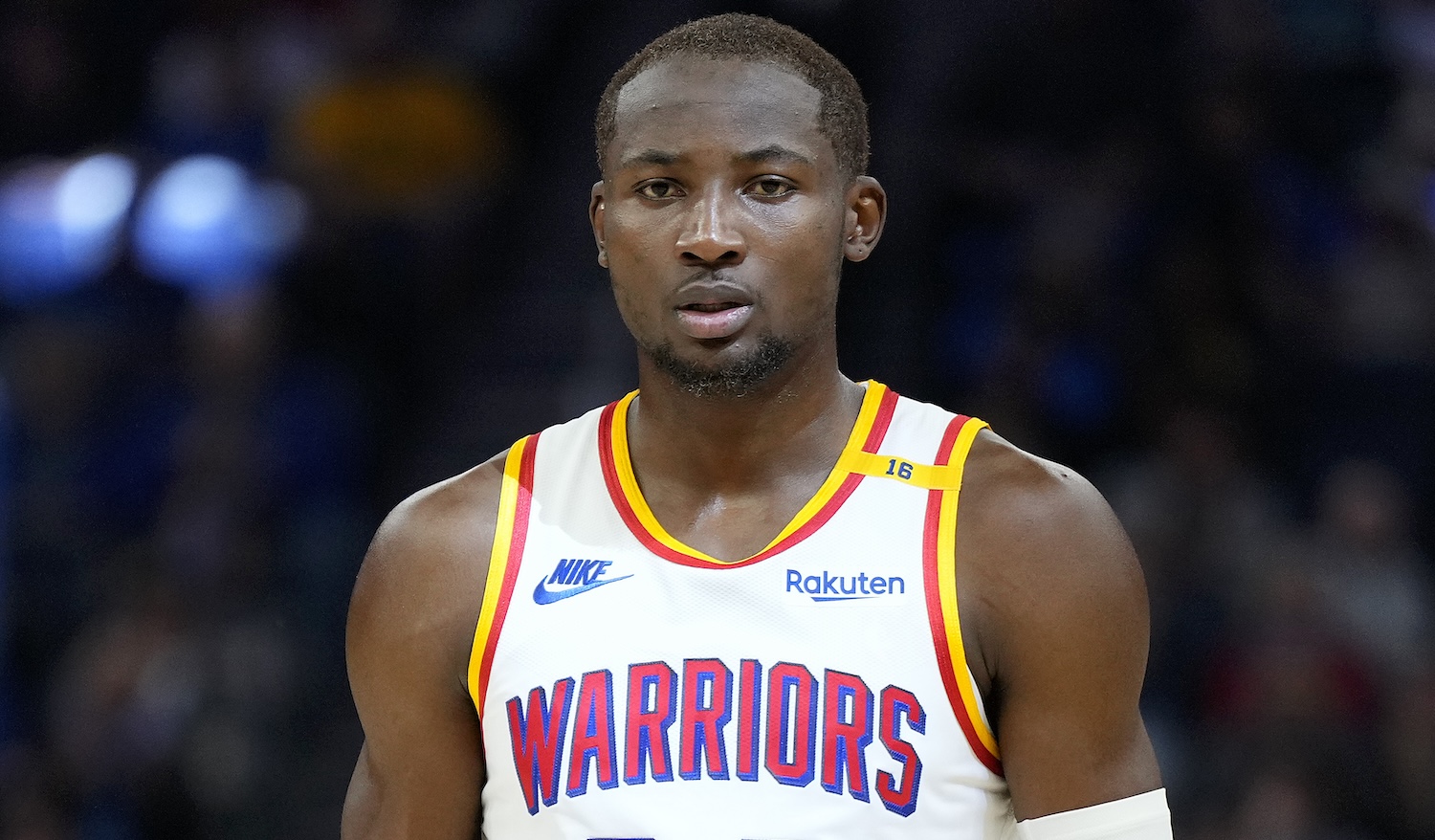Thursday night's Rockets-Warriors game was a burly, cantankerous example of one of my favorite categories of regular-season NBA game: the Double Desperation game. The way it was won, specifically the player who won it, makes the outcome feel more indicative than a normal regular-season game. Let me explain.
The regular season is interminable, and every team must manage its efforts in winter to be prepared for the games that matter in spring. Not all 82 games are going to be bangers, or even enlivened by extreme physical efforts or bold competitive displays. The schedule dictates that a decent number of games with big rest or travel disparities will tilt one way, and so not all games will feel as significant for both teams. But winning still matters, and like its colleagues such as the National TV Showcase and These Guys Want To Kill Each Other and Check This Shit Out: We Broke Math games, the Double Desperation game is given higher stakes by its participants' circumstances.
The Warriors came in on a five-game losing streak and were missing their two best players, while the Rockets had just lost a pretty outrageous one up the road in Sacramento that featured their coach and best player melting down and their sixth man nearly going Malice at the Palace mode. There's no expected, neutral outcome, like there was for, say, last night's Wizards–Mavericks game. Either Golden State would start Friday looking down at the huge pack of teams below them in the standings race up like piranhas to a carcass, or Houston would be left watching Oklahoma City fortify its hold on the one seed. Which is all to say, the circumstances of Jonathan Kuminga's career-best night made the 22-year-old wing's performance feel extra significant.
The Warriors won a defensive rockfight, 99-93, behind Kuminga's career-high 33 points on a career-high 22 shots. Both of those numbers are significant, and were necessary for the Warriors to win, because they point to a possible solution to an existential problem: Golden State's offense is ass when Steph Curry sits. The day-to-day experience of watching this team struggle to generate shots says this louder than the numbers, as the specific problem is not that the Warriors are short on scorers, but that they're bereft of good creators. When Steph is on the court, his passing and ball-handling unzips defenses just as much as his shooting; when he sits, the Warriors still do a lot of passing and moving, just nothing that troubles or dislodges opponents. In short, they don't have anyone else who can create advantages. Besides Kuminga, that is.
Kuminga is a weird player. He has never been and is certainly not currently a reliable shooter. The violent athleticism he flashed during the Warriors' 2021-22 title run has mellowed out, and he doesn't always have the positioning nous to really exploit the space defenses give him off the ball when he's on the court in the Warriors' best lineups. He's at his best as a slasher, and the time and space he needs to get going are not always luxuries the Warriors can afford him. Steve Kerr has toggled him into and out of Golden State's starting lineup in an attempt to get the most out of his misshapen game, which has annoyed Kuminga because he sees himself as someone who should play a leading role and has all-but-publicly said so. Kuminga is probably right, and the best version of these Warriors is one where Kuminga leads the offense in the Curry-less minutes. He showed how that could work, and work well, against Houston.
As I said earlier, the career-high 22 shots indicate what sort of game it was at least as much as the career-high 33 points. Kuminga was the Warriors' main initiator, especially in the fourth quarter once Houston clawed back into the game. Against Houston's stable of mega-physical defenders, Kuminga looked totally comfortable getting to the basket. He was 10-for-12 in the paint, consistently putting pressure on the Rockets defense in the half-court and in transition. Kuminga scored 14 in the fourth quarter, repeatedly going at Dillon Brooks, getting to the rack, and showing off his elite finishing skills.
You can see the vision for Kuminga as lead guy here: His size and skill allow him to reliably apply pressure, which gets the defense moving and therefore signals the green leafy shoots of good offense to poke up out of the relative permafrost of, like, Brandin Podziemski trying to do Steph stuff but mostly doing the Steph stuff that involves throwing the basketball seven rows into the stands. Kuminga is also evolving as a game-reader and is passing better this season, even if his assist numbers are still unimpressive.
Pressure also works in the opposite direction: This was a serious opportunity for Kuminga to make his case, and if he shot 22 times in the Warriors' sixth straight loss, he would have blown a tremendous opportunity to show his worth. That's why the Double Desperation context makes me value the Kuminga performance more. The Warriors are winning with depth and a crushing defense, one with less individual talent than Orlando, Oklahoma City, or Houston but probably more coordination. With all due respect to Lindy Waters III, it's not really all that clear whether that formula will work as well in the playoffs. You have to think, then, about what about the Warriors would have to change for them to reach whatever their peak might be. I keep coming back to Kuminga. With Andrew Wiggins looking lively once again (the rebounding numbers are the same but he looks better on the glass this year), Buddy Hield functioning well as a single-purpose blunt object, and a confident bench full of useful players, the Warriors have a good number of play-finishers and defenders to capably tread water in most contexts. But a fully torqued-up Kuminga gives them something nobody else can.





